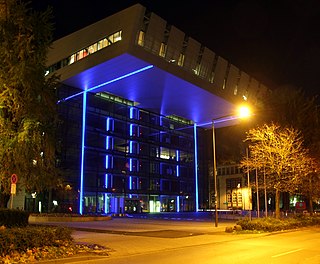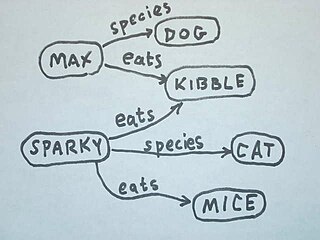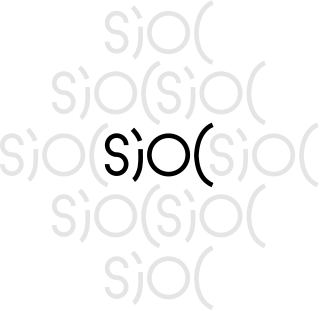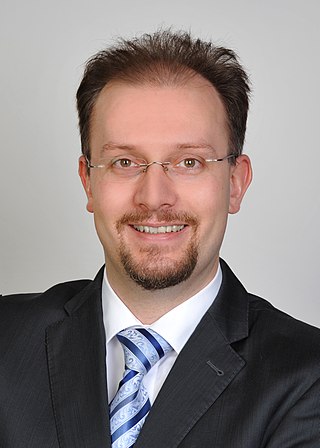The Semantic Web, sometimes known as Web 3.0, is an extension of the World Wide Web through standards set by the World Wide Web Consortium (W3C). The goal of the Semantic Web is to make Internet data machine-readable.
In computer science and information science, an ontology encompasses a representation, formal naming, and definition of the categories, properties, and relations between the concepts, data, and entities that substantiate one, many, or all domains of discourse. More simply, an ontology is a way of showing the properties of a subject area and how they are related, by defining a set of concepts and categories that represent the subject.
The Resource Description Framework (RDF) is a World Wide Web Consortium (W3C) standard originally designed as a data model for metadata. It has come to be used as a general method for description and exchange of graph data. RDF provides a variety of syntax notations and data serialization formats, with Turtle currently being the most widely used notation.

RWTH Aachen University, also known as North Rhine-Westphalia Technical University of Aachen, Rhine-Westphalia Technical University of Aachen, Technical University of Aachen, University of Aachen, or Rheinisch-Westfälische Technische Hochschule Aachen, is a German public research university located in Aachen, North Rhine-Westphalia, Germany. With more than 47,000 students enrolled in 144 study programs, it is the largest technical university in Germany. In 2018, the university was ranked 31st in the world university rankings in the field of engineering and technology, and 36th world-wide in the category of natural sciences.
The Web Ontology Language (OWL) is a family of knowledge representation languages for authoring ontologies. Ontologies are a formal way to describe taxonomies and classification networks, essentially defining the structure of knowledge for various domains: the nouns representing classes of objects and the verbs representing relations between the objects.
The Digital Enterprise Research Institute (DERI) is a former research institute at NUI Galway. It is now part of the Insight Centre for Data Analytics. Insight was established in 2013 by Science Foundation Ireland with funding of €75m.

The ultimate goal of semantic technology is to help machines understand data. To enable the encoding of semantics with the data, well-known technologies are RDF and OWL. These technologies formally represent the meaning involved in information. For example, ontology can describe concepts, relationships between things, and categories of things. These embedded semantics with the data offer significant advantages such as reasoning over data and dealing with heterogeneous data sources.
The Semantic Web Rule Language (SWRL) is a proposed language for the Semantic Web that can be used to express rules as well as logic, combining OWL DL or OWL Lite with a subset of the Rule Markup Language.

Semantically-Interlinked Online Communities Project is a Semantic Web technology. SIOC provides methods for interconnecting discussion methods such as blogs, forums and mailing lists to each other. It consists of the SIOC ontology, an open-standard machine readable format for expressing the information contained both explicitly and implicitly in Internet discussion methods, of SIOC metadata producers for a number of popular blogging platforms and content management systems, and of storage and browsing/searching systems for leveraging this SIOC data.
CAEX is a neutral data format that allows storage of hierarchical object information, e.g. the hierarchical architecture of a plant. On a certain abstraction level, a plant consists of modules or components that are interconnected. CAEX allows storage of those modules or components by means of objects. Object oriented concepts such as encapsulation, classes, class libraries, instances, instance hierarchies, inheritance, relations, attributes and interfaces are explicitly supported. CAEX bases on XML and is defined as an XML schema. The original intention of developing CAEX was to remedy industry's lack of a common and established data exchange between process engineering tools and process control engineering tools. However, CAEX can be applied to all types of static object information, e.g. plant topologies, document topologies, product topologies, petri nets. It can also be used for non-technical applications like phylogenetic trees.

The Semantic Web Stack, also known as Semantic Web Cake or Semantic Web Layer Cake, illustrates the architecture of the Semantic Web.

In computer science, information science and systems engineering, ontology engineering is a field which studies the methods and methodologies for building ontologies, which encompasses a representation, formal naming and definition of the categories, properties and relations between the concepts, data and entities. In a broader sense, this field also includes a knowledge construction of the domain using formal ontology representations such as OWL/RDF. A large-scale representation of abstract concepts such as actions, time, physical objects and beliefs would be an example of ontological engineering. Ontology engineering is one of the areas of applied ontology, and can be seen as an application of philosophical ontology. Core ideas and objectives of ontology engineering are also central in conceptual modeling.
A semantic social network is the result of the application of Semantic Web technologies to social networks and online social media.
Ontoprise GmbH was a provider of Semantic Web infrastructure technologies and products used to support dynamic semantic information integration and information management processes at the enterprise level. Its primary place of business was located in Karlsruhe, Germany.
TriX is a serialization format for RDF graphs. It is an XML format for serializing Named Graphs and RDF Datasets which offers a compact and readable alternative to the XML-based RDF/XML syntax. It was jointly created by HP Labs and Nokia.

Reinhard Wilhelm is a German computer scientist.
Knowledge extraction is the creation of knowledge from structured and unstructured sources. The resulting knowledge needs to be in a machine-readable and machine-interpretable format and must represent knowledge in a manner that facilitates inferencing. Although it is methodically similar to information extraction (NLP) and ETL, the main criterion is that the extraction result goes beyond the creation of structured information or the transformation into a relational schema. It requires either the reuse of existing formal knowledge or the generation of a schema based on the source data.

Matthias Jarke is a German computer scientist.

Jens Lehmann is a computer scientist, most noted for his work on knowledge graphs and Artificial Intelligence. He is a principal scientist at Amazon (company), honorary professor at TU Dresden and a fellow of European Laboratory for Learning and Intelligent Systems. Formerly, he was a full professor at the University of Bonn, Germany and lead scientist for Conversational AI and Knowledge Graphs at Fraunhofer IAIS.

Johann Wolfgang Koch is a German physicist and computer scientist. He teaches applied computer science at the University of Bonn, Germany, and is chief scientist of the Fraunhofer Institute for Communication, Information Processing and Ergonomics. In 2011, Koch was elected a IEEE Fellow and since 2015, he has been an IEEE Distinguished Lecturer









